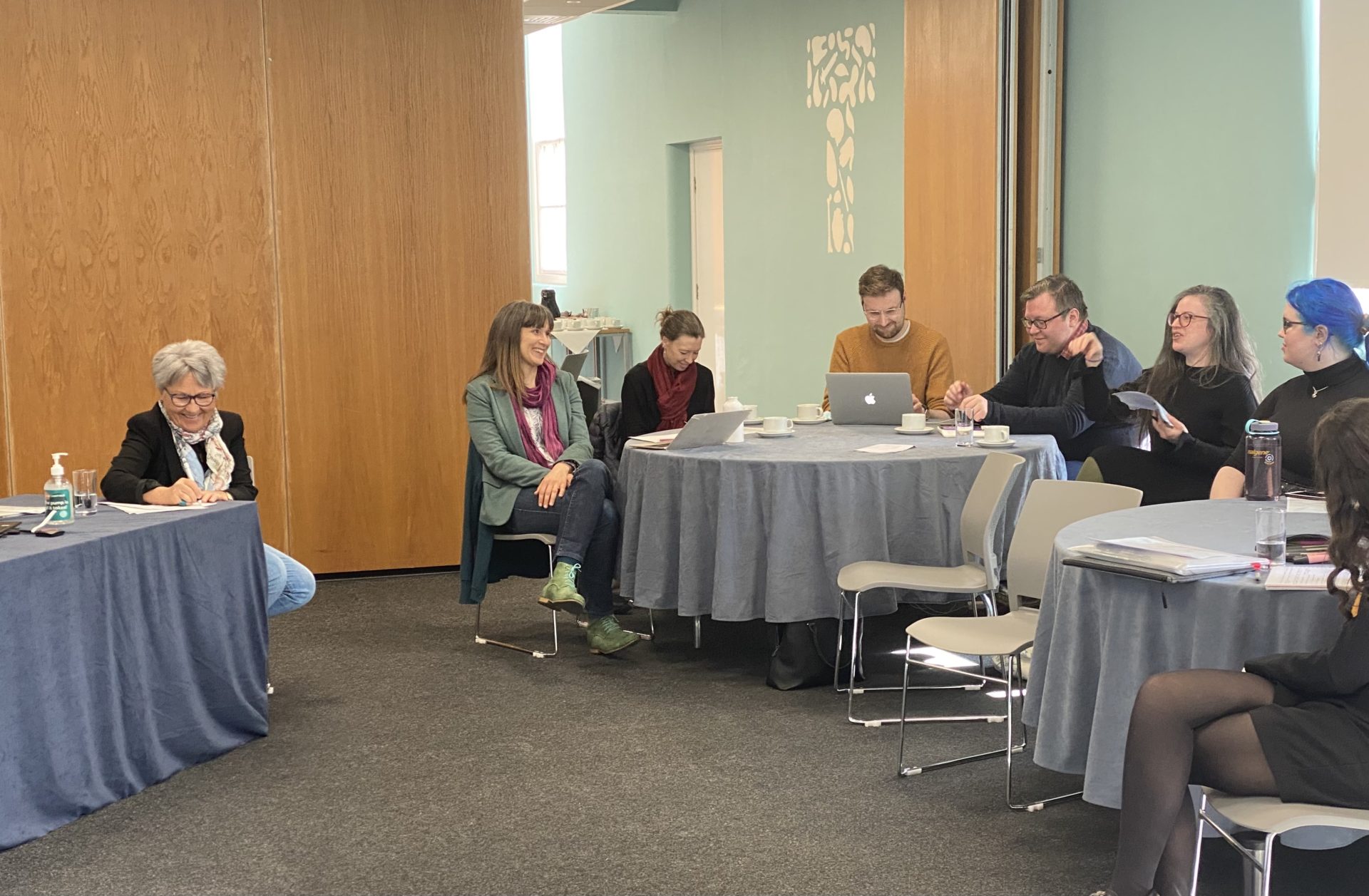Futures of Care Symposium at the Thackray Museum of Medicine
The Futures of Care Symposium ran 8 April 2022 in the Thackray Museum of Medicine, as a bookend to the Launch of the ‘Can Robots Care?’ exhibition back in November 2021. Subtitled ‘Relationality and Responsibility in more than Human Worlds’, this day-long, multi-disciplinary event explored the material, ethical, political and social dimensions of a wide range of non-human care scenarios, including but also moving beyond robot care.
The day began with PI Amelia DeFalco welcoming participants from all around the UK, which was the first time many had joined a symposium or conference live and in-person since the first lockdowns of 2020. Amelia outlined the underlying aim of the symposium: to connect questions raised by robot care to larger discussions around the ethics and affects, politics and economics of more-than-human care, both as it is and as it is imagined by artists, engineers, tech developers, policy makers and others.
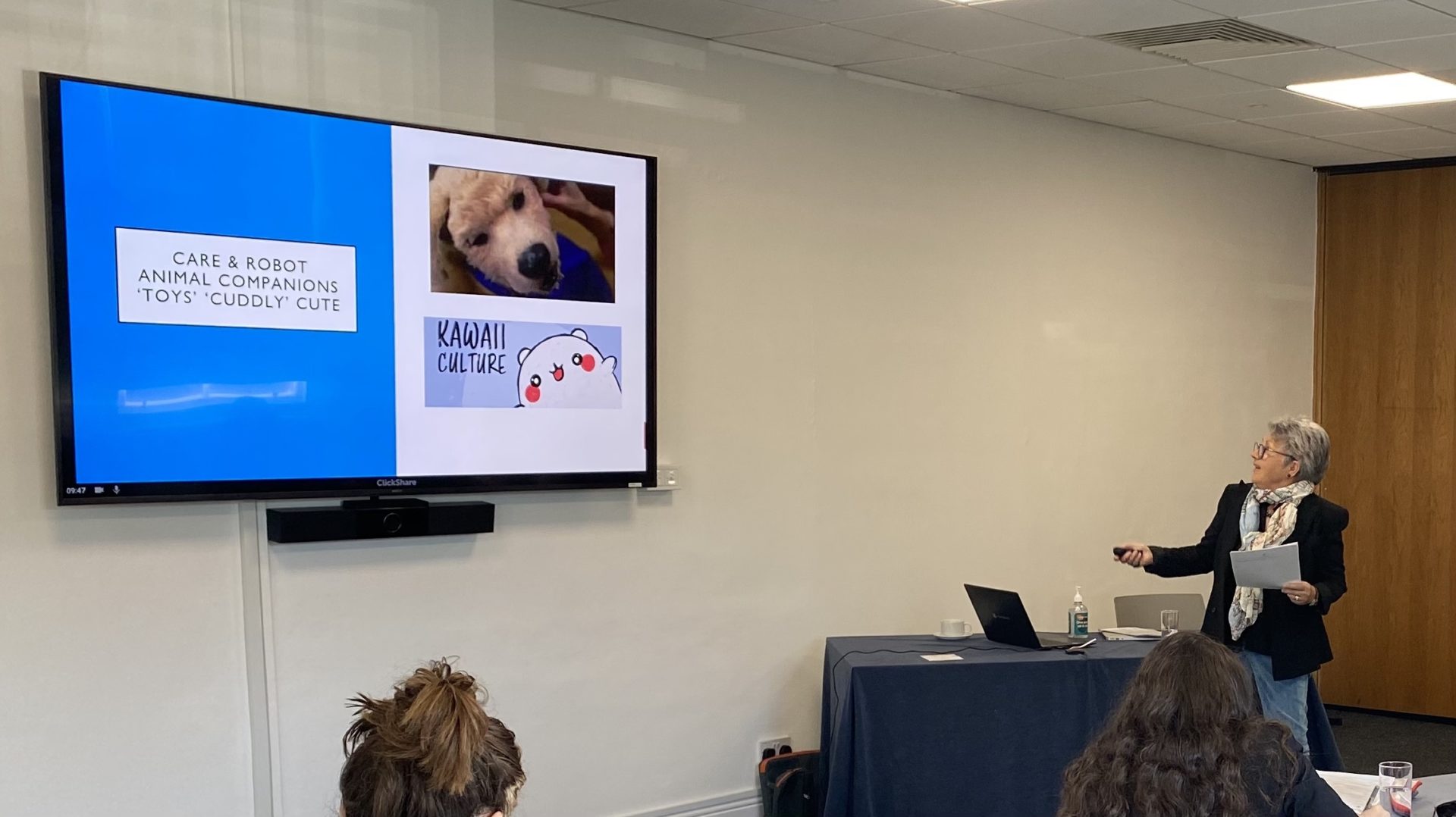
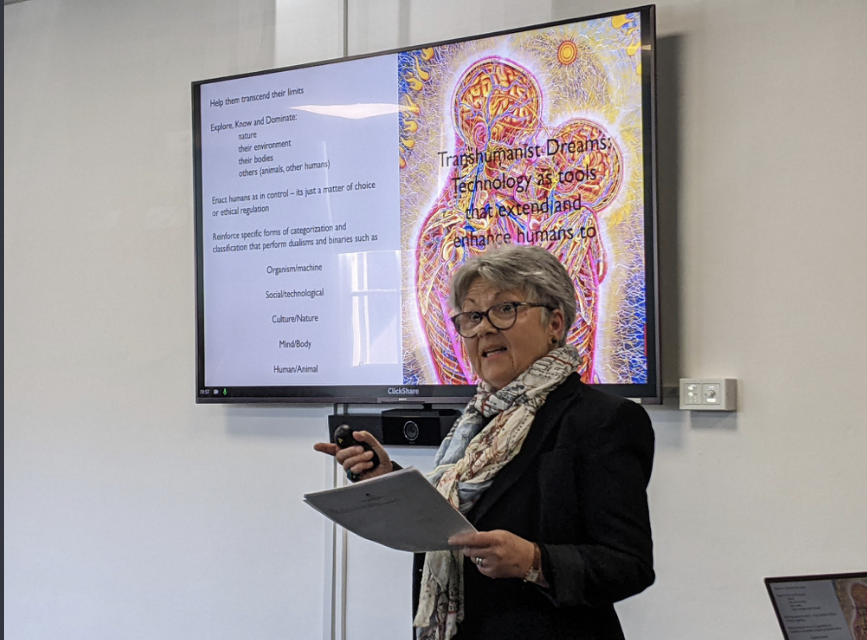
So it was very fitting that our keynote, the ebullient Joanna Latimer launched us right into the thorny entanglements of technology and the politics of healthcare. She reminded us, through Latour, that world-making is always more-than-human, while positioning the reductive techno-fantasies of transhumanism as reinscribing and reinforcing the troubling and specious exceptionalism of the humanist project. ‘Only connect’ says Forster. Sure, but Joanna also highlighted the importance of disconnection, of detachment. Citing Donna Haraway, Joanna concluded her talk by embracing porous boundaries, a world without beginning, a world without end, where care involves a ‘keeping alongside otherness’. A general consensus emerged, echoed throughout the day, that it is nevertheless easier to imagine the end of the world (as in the sci-fi film Aniara, discussed in Amy Chambers’ paper about AI and reciprocal care) than the end of capitalism, which is so embedded in the delivery and practice of healthcare in our neoliberal worlds.
The panels got underway with Alison Searle and Jo Sadgrove, who invited us to consider the ongoing and persistent challenges of pastoral ‘care’ in the form of the letters of early colonial Anglican figures in the 18th century America and the problems of exporting metrics of success from the global north into ‘relational communities of care’ in Lesotho and Malawi. Later, Scott Midson introduced us to the uncertain successes of Blessu2, the German ‘robot priest’ from 2017. Picking up the keynote thread of detachment, Jack Slater proposed the merits of a ‘theology of withdrawal’.
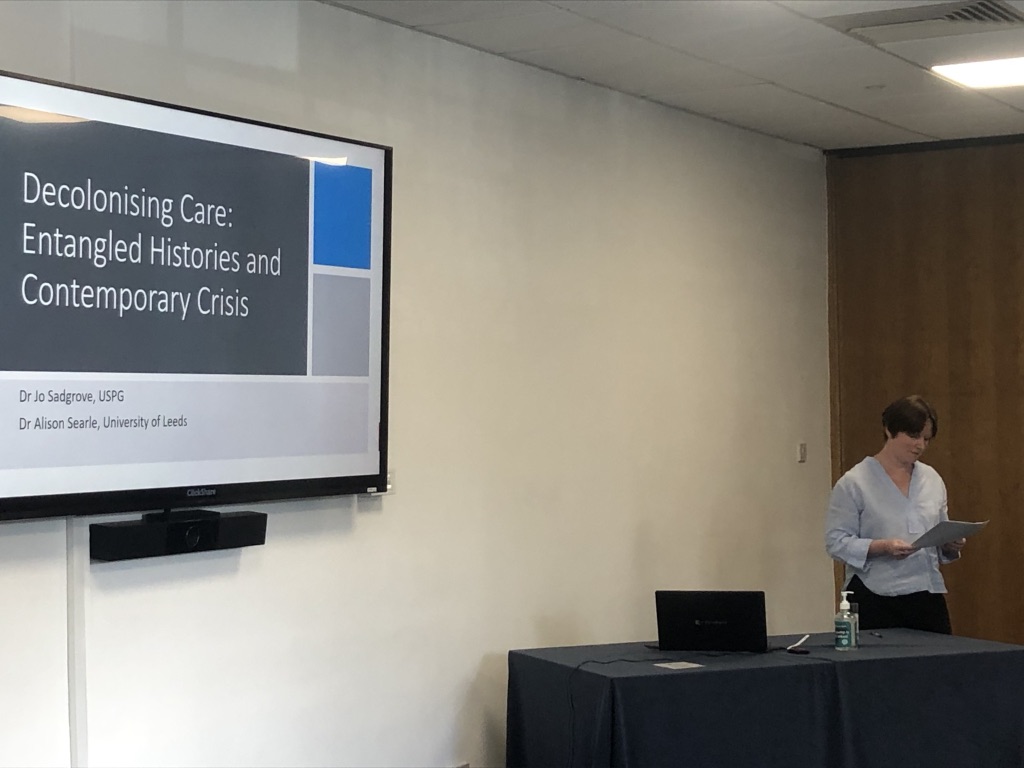
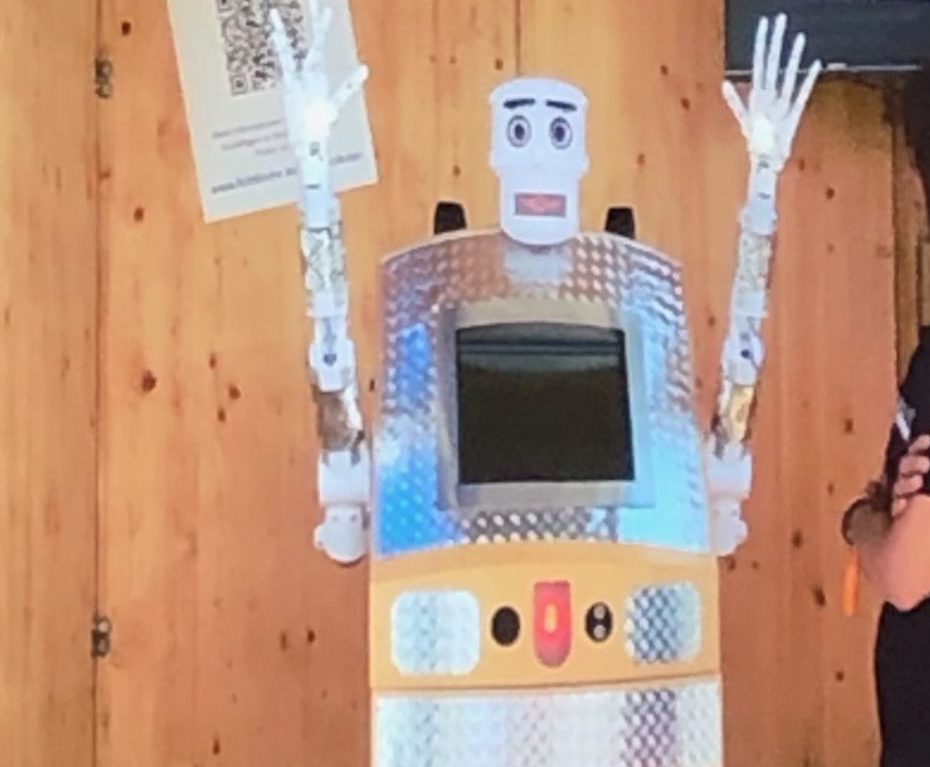
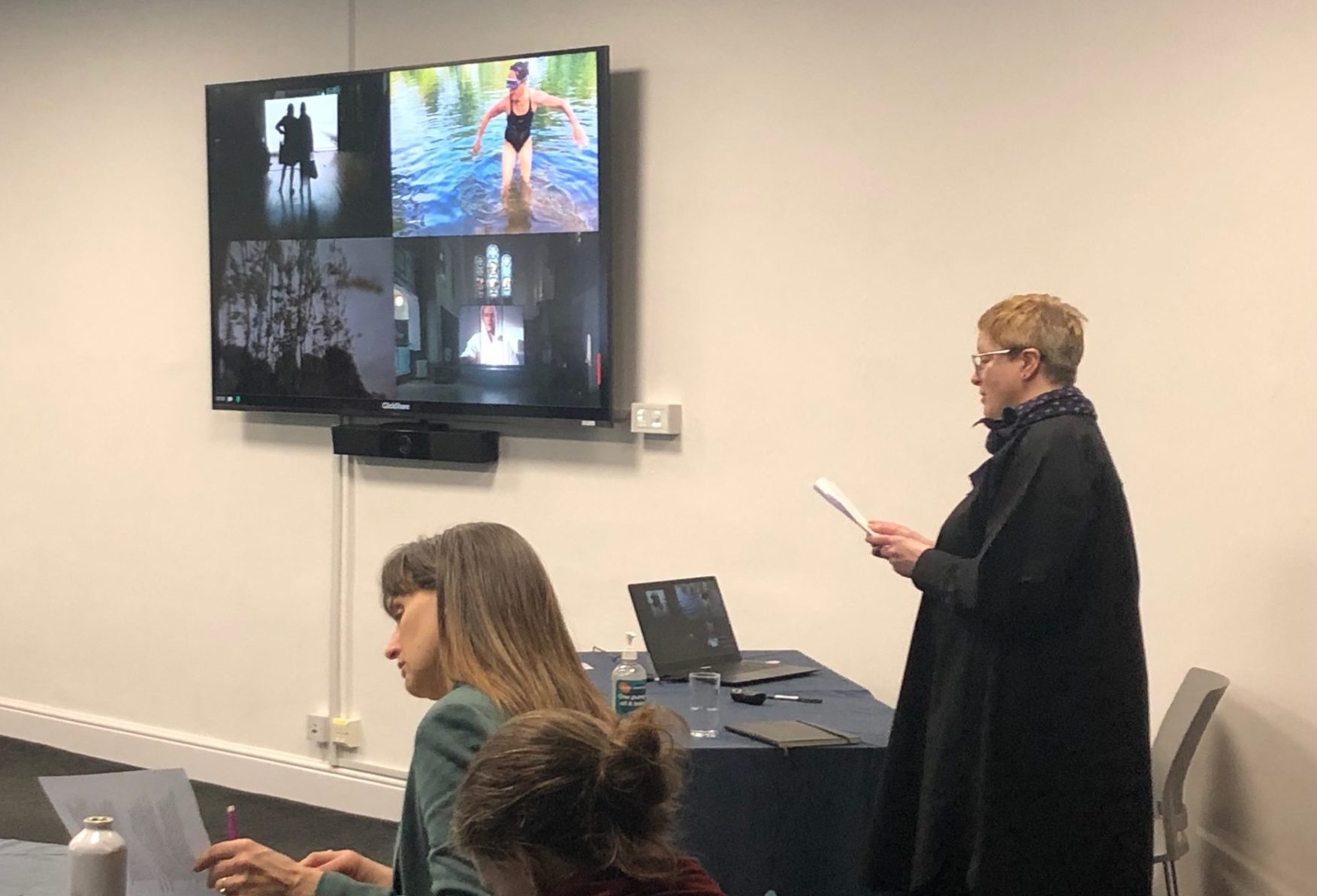
In the afternoon we enjoyed a wonderful, reflective interlude. Our attention was brought to the primacy of the breath and the anatomy of the lungs and heart in Anna Walker’s mesmerising 20-minute short film ‘Breathe Wind into Me’, which became a touchstone for her paper on breathing as relation, limbic resonance and haptic technologies of care. Eline Tabak called for a ‘careful attentiveness’ in the stories told about species decline, using the European honeybee as a case study of obfuscation. Derek Jarman’s garden, a site of care in sharp contrast to the site of healthcare practices invoked in the keynote, was the focus of Alice Hill-Woods‘ talk on the intersections of text, garden, illness, and nurturing in the filmmaker’s life-writing in which a ‘rewilded economy of care reveals an ecosystem instead of a human system.’
Aptly enough, our two remote presenters, from Australia and Canada, shared ideas about the role of technology in care. Raelene Wilding from Melbourne, stayed up late to share her research into new technologies and older learners, noting that these older learners bring moments of reinterpretation and resistance to their interactions with, for example, VR headsets. Rather than the technology isolating the individual in their own world, the headsets became part of a community of care among residents who encouraged and guided one another through various virtual experiences. From Hamilton, Nicole Dalmer arose early to share her research into the impact of the proliferation of information made available to carers through the internet. The challenges of care work are becoming the challenges of information management.
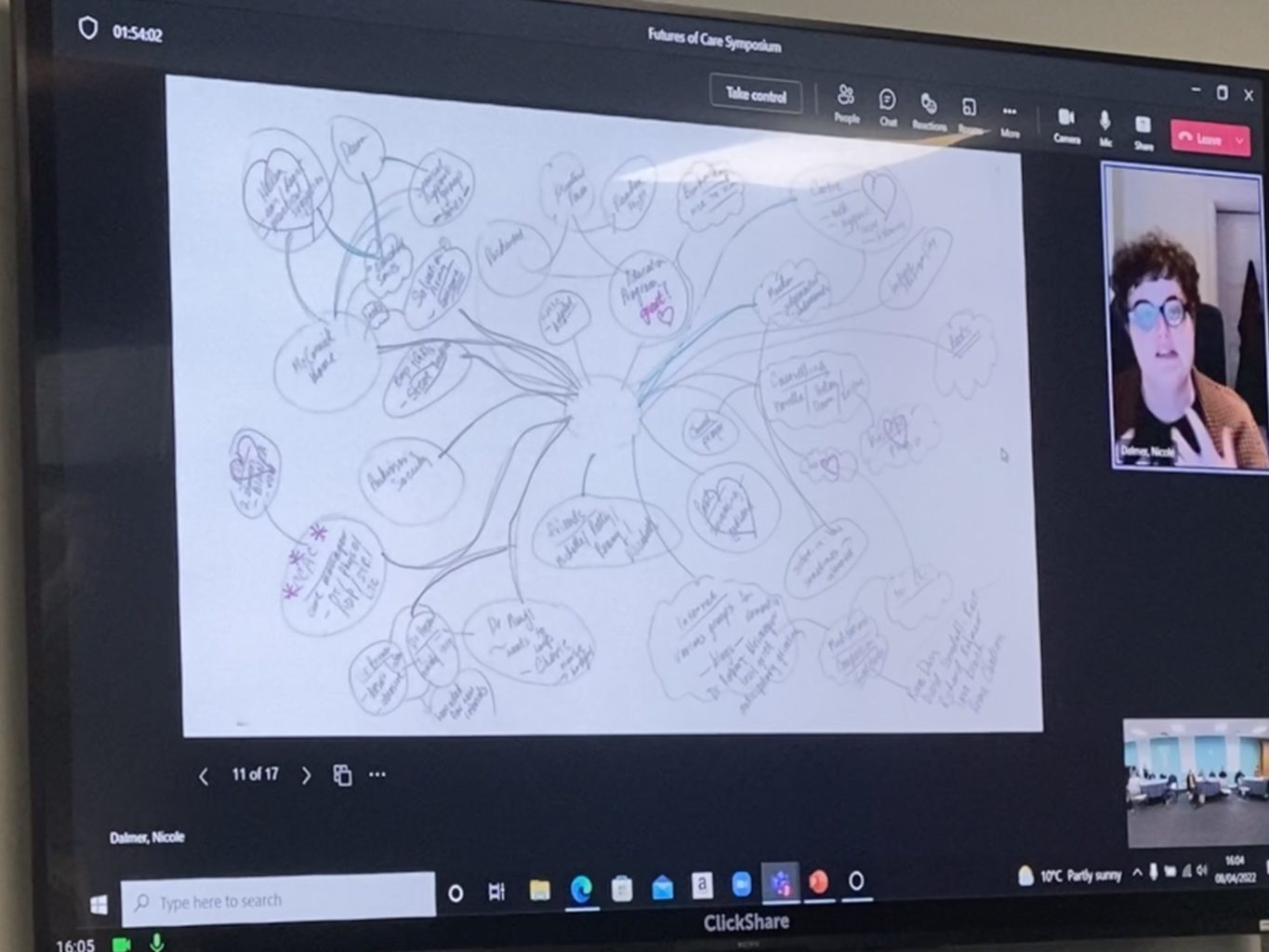
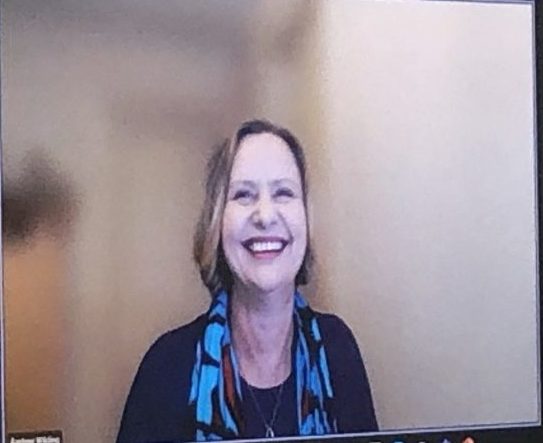
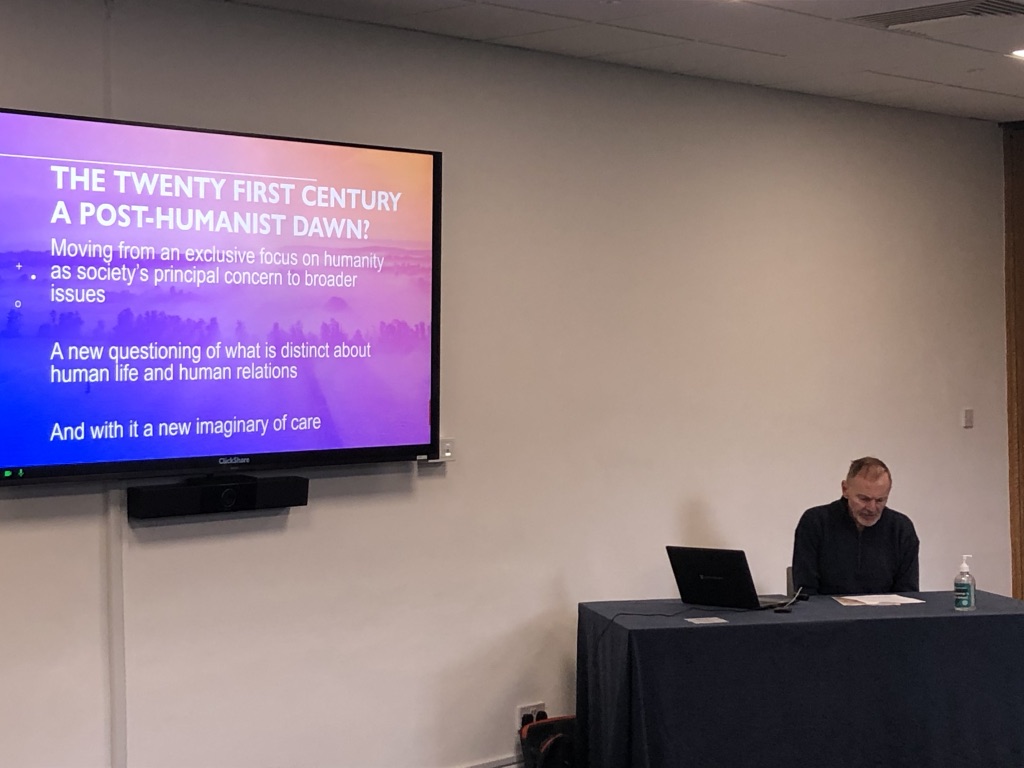
Our final paper, presented by Chris Gilleard, neatly picked up the thread concerning sites of care from the keynote, auguring a shift to a ‘robotics of intimacy’, as robots move increasing from the public spaces of industry and factories into private settings of care, raising all manner of ethical questions and debate.
A big thank you to all our presenters and participants for creating a wonderfully thought-provoking day!
